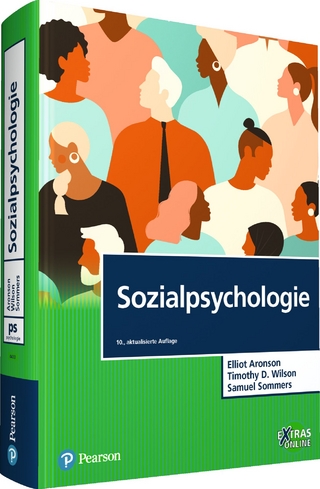
Violence Rewired
Cambridge University Press (Verlag)
978-1-009-20227-5 (ISBN)
This thought-provoking book draws together research from genetics, anthropology, psychology and the social sciences to show that widespread assumptions about the inevitability of human violence are almost entirely a collection of myths. While violence has been a recurring feature of human life, there is no reason to suppose that it is inherent in 'human nature'. On the contrary, patterns of aggressive behaviour are largely learned through experience and even those individuals who have often acted violently can learn to change. Rejecting the speculations of much contemporary writing about human aggression, Violence Rewired presents an evidence-based alternative: a multi-level model of action to reduce violence at both individual and collective levels, linked to public health initiatives developed by the World Health Organization. If humanity is to survive the challenges it faces, a more realistic appraisal of ourselves and our basic tendencies is an indispensable part of the solution.
Richard Whittington is a professor at the Norwegian University of Science and Technology (NTNU) and is based at the Brøset Centre for Research and Education in Forensic Psychiatry, St. Olav's University Hospital, Trondheim, Norway. He is a psychologist with a focus on violence prevention and mental health and is an Honorary Senior Research Fellow at the University of Liverpool. James McGuire is Emeritus Professor of Forensic Clinical Psychology at the University of Liverpool. He is also an expert witness in criminal courts and mental health tribunals, a consultant for criminal justice agencies in thirteen countries, and winner of the 2012 Research Prize from the International Corrections and Prisons Association.
Foreword. Between chimpanzees and bonobos: the challenge of violence prevention; Part I. Origins: 1. The prospect of human violence: pessimism or realism?; 2. The roots of human violence: in search of the 'hard wired'; 3. The biology of violence: possibilities and limitations; 4. Developmental factors in violence propensity: the learning of violence; 5. Structural violence: social and political factors in understanding violence; Part II. Solutions: 6. Advancing a global public health response to violence; 7. Risk assessment: can violence be predicted?; 8. Pharmaceutical interventions: medication, violence and the public health; 9. Psychosocial interventions: the unlearning of violence; 10. Changing structures: integrated interventions for violence; Conclusion; Appendix. Major UN initiatives to address violence 1986–2018.
| Erscheinungsdatum | 01.11.2021 |
|---|---|
| Vorwort | Maria Fernanda Tourinho Peres |
| Zusatzinfo | Worked examples or Exercises; 7 Tables, black and white; 3 Line drawings, black and white |
| Verlagsort | Cambridge |
| Sprache | englisch |
| Maße | 151 x 228 mm |
| Gewicht | 475 g |
| Themenwelt | Geisteswissenschaften ► Psychologie ► Sozialpsychologie |
| Recht / Steuern ► EU / Internationales Recht | |
| Recht / Steuern ► Privatrecht / Bürgerliches Recht ► Medizinrecht | |
| Sozialwissenschaften ► Soziologie | |
| ISBN-10 | 1-009-20227-8 / 1009202278 |
| ISBN-13 | 978-1-009-20227-5 / 9781009202275 |
| Zustand | Neuware |
| Haben Sie eine Frage zum Produkt? |
aus dem Bereich


